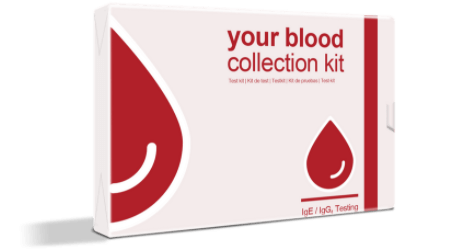A lot of skin conditions can be traced back to diet. While what you eat often does determine how your body looks and feels, it does go further than a healthy versus an unhealthy diet. In many cases, there can be a connection between skin conditions and food intolerances, whether known or unknown. This is often the case with psoriasis. If you are dealing with chronic or severe psoriasis, food intolerance testing could just be the solution to your needs.
Psoriasis and the food intolerance connection
The core cause of psoriasis is still somewhat of a mystery in understanding whether it’s one core thing or a combination of factors that cause a flare-up of this complex skin condition. The condition itself, however, involves a red, often scaly rash popping up and creating a severe itch that requires topical treatment. The rash itself is often seen on the back of the scalp, the lower back, on the back of hands, knees and even elbows.
The rash flares up due to inflammation. During this inflammation period, the skin cells on certain parts of the body produce thicker patches of skin due to newels growing faster than the old ones are shed. Sometimes the rash is localized, and other times it is all over the body.
The potential connection to food intolerance is that the inflammation may be caused by your body trying to fight off a food ingredient that it is unable to digest. In the process of trying to work it through your digestive tract, inflammation is produced, and this could result in a flare-up of psoriasis.
Treatment options
In order to determine if food intolerance is the main culprit for your psoriasis flare-ups, there are a few options that you can look into to help manage the discomfort. The best options are:
- A food intolerance test: The best way to help understand what’s causing your body discomfort is actually to take a physical food intolerance test. This sophisticated test will give you clear results that will help you see what is reacting properly with your body and what isn’t.
- Food and symptom tracking: If you want to skip the test, or add to its accuracy, you can keep a log of your diet (and food ingredients) as well as any symptoms that you are experiencing. This will help you see which days (and foods) are worse than others.
- An elimination diet: An elimination diet from the right aggravating food ingredients will help you to see whether food intolerances are, in fact, what are causing psoriasis flare-ups. From there, you’ll be able to make any permanent adjustments you need to enjoy a better quality of life.
While the cause of psoriasis may not be as straight-forward as we’d like, it’s nice to know that there are options to help minimize flare-ups; particularly those that are related to possible food intolerances. All that’s left is to put them to work and see which one helps you the most in dealing with psoriasis.


